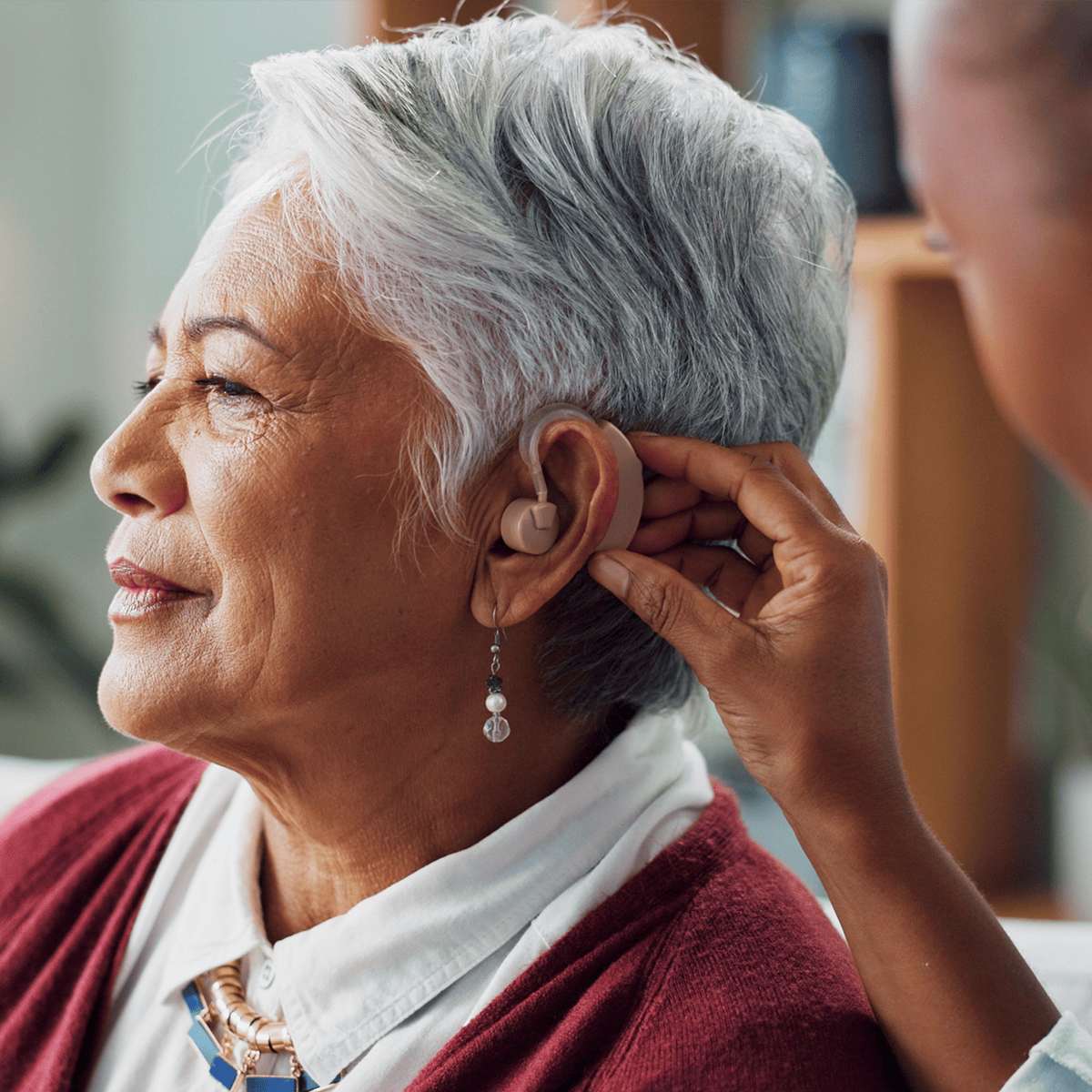The Side Effects of Untreated Hearing Loss in Seniors


Key Takeaways
- Regular hearing screenings should be part of senior healthcare routines.
- A higher risk of dementia and depression is a side effect of untreated hearing loss.
- Early treatment can prevent the unwanted consequences of hearing loss.
As a caregiver for an older adult, you’re probably very busy managing medications, checking blood pressure, and monitoring health concerns, like hearing loss. While this is often a normal part of aging, the side effects of untreated hearing loss can impact overall health in surprising ways.
Why Hearing Loss in Seniors Is Often Overlooked
Hearing loss typically happens gradually over time. It can be easy to overlook because the brain adapts to these slow changes.
Many seniors resist getting help because they worry about being judged. Other times, they believe hearing loss is just a normal, unavoidable part of aging.
The Obvious vs. The Hidden: Beyond Communication Challenges
The most obvious signs of hearing loss include asking people to repeat themselves, turning up the TV volume consistently, and having difficulty following conversations.
There are also other hidden effects of hearing loss, including impacts on balance, cognitive function, and emotional health. Understanding these less obvious effects helps caregivers recognize why treating hearing loss is about much more than just improving communication.
The Health Risks of Hearing Loss in Seniors
In addition to negatively affecting hearing health, other health risks of hearing loss include:
- Brain health risks: Studies show that hearing loss can increase the risk of dementia by up to five times.
- Physical safety risks: Problems with hearing can triple the risk of falls and prevent seniors from recognizing potential dangers in their surroundings.
- Heart health: The same conditions that cause heart problems, like high blood pressure and diabetes, can damage the blood vessels in the ear.
- Mental health impact: The effects of hearing loss on mental health include higher rates of depression, anxiety, and feelings of isolation.
The Cognitive Connection: Hearing Loss and Brain Health
One of the most concerning results of hearing loss is its effect on brain health. Hearing loss forces the brain to work overtime to try to understand what people are saying. This extra effort takes resources away from memory and thinking.
Hearing loss can also lead to structural changes within the brain. When the parts of the brain that process sound and speech aren’t used as frequently as they should be, it can cause them to shrink.
Social isolation is another side effect of untreated hearing loss. When hearing becomes difficult, many people withdraw from conversations and social activities. This removes important brain stimulation and can lead to mental health challenges.
Side Effects of Untreated Hearing Loss
In addition to negatively affecting brain health, additional side effects of hearing loss include:
- Safety concerns: Failing to hear smoke alarms, doorbells, or approaching vehicles can create dangerous situations.
- Sleep problems: Research shows a connection between hearing loss and poor sleep quality.
- Loss of independence: As seniors manage their hearing loss, they may become more dependent on caregivers for daily activities and social interaction.
The Long-Term Consequences of Hearing Loss
Without proper treatment, hearing loss often worsens over time:
- Accelerated cognitive decline: Studies show that untreated hearing loss speeds up cognitive changes by 30-40%.
- Increased caregiver burden: Without being able to communicate properly, seniors often become more dependent on their caregivers for tasks they used to be able to complete independently.
- Higher healthcare costs: The health problems associated with untreated hearing loss can lead to more doctor visits, medications, and even hospitalizations.
- Reduced quality of life: The combined effects often result in decreased enjoyment of life and lower overall well-being.
Signs You Might Notice in a Loved One
As a caregiver, you’re in a perfect position to notice these warning signs:
- Consistently turning up the TV or radio volume very loud
- Frequently asking people to repeat themselves or having trouble following conversations
- Problems hearing on the phone
- Difficulty hearing in noisy environments
- Withdrawing from social situations
- Balance problems or increased falls
If you notice these signs, it’s time to discuss your loved one’s hearing health with their doctor.
How to Support Seniors with Hearing Loss
Simple ways to protect your senior’s hearing health include improving communication, maintaining eye contact as you speak, and using facial expressions or gestures to add context to your conversation.
You can also create a hearing-friendly environment for them by adding captions to their TV, installing smart devices like doorbells, and improving lighting in their home. Getting them a ClearCaptions Phone can also help them stay connected to friends and family by providing captions of the words their callers say, making phone conversations easier to understand.
Of course, you can also encourage them to seek professional help. Scheduling regular hearing exams, attending appointments, and assisting with research on hearing aids will also help individuals with hearing loss enjoy a better quality of life.
Take Action Early

The most important message for caregivers is this: early action matters. The sooner hearing loss is addressed, the better the outcomes will be. Research shows that people who get hearing aids sooner have better results than those who wait longer.
Don’t wait until the person you care for starts to complain about hearing problems. Being proactive about regular hearing screenings will help keep them healthy and happy.
Frequently Asked Questions
What happens if hearing loss is left untreated?
If hearing loss is left untreated, it can lead to many serious health problems, including faster cognitive decline, increased risk of dementia, higher rates of depression and anxiety, social isolation, and increased risk of falls.
Does hearing loss affect balance?
Yes, hearing loss affects balance. Research shows that even mild hearing loss can triple the risk of falls.
What are the emotional outcomes of hearing loss in seniors?
Many seniors experiencing hearing loss often feel frustrated when they struggle to follow conversations or embarrassed when they respond inappropriately because they misheard something. This can lead to them withdrawing from activities and relationships they previously enjoyed. This social isolation can have severe emotional and mental health consequences.
Sources
- https://www.hopkinsmedicine.org/health/wellness-and-prevention/the-hidden-risks-of-hearing-loss
- https://www.utsouthwestern.edu/newsroom/articles/year-2022/july-hearing-loss-and-falls.html
- https://www.audiology.org/consumers-and-patients/hearing-and-balance/depression-and-hearing-loss/
- https://www.audiology.org/sleep-disorders-and-hearing-loss/
- https://pmc.ncbi.nlm.nih.gov/articles/PMC3869227/
- https://www.ncbi.nlm.nih.gov/books/NBK536548/
- https://pmc.ncbi.nlm.nih.gov/articles/PMC9554784/








